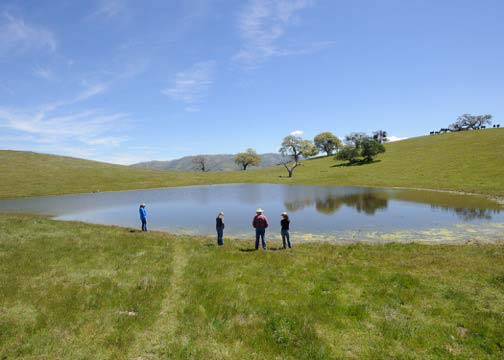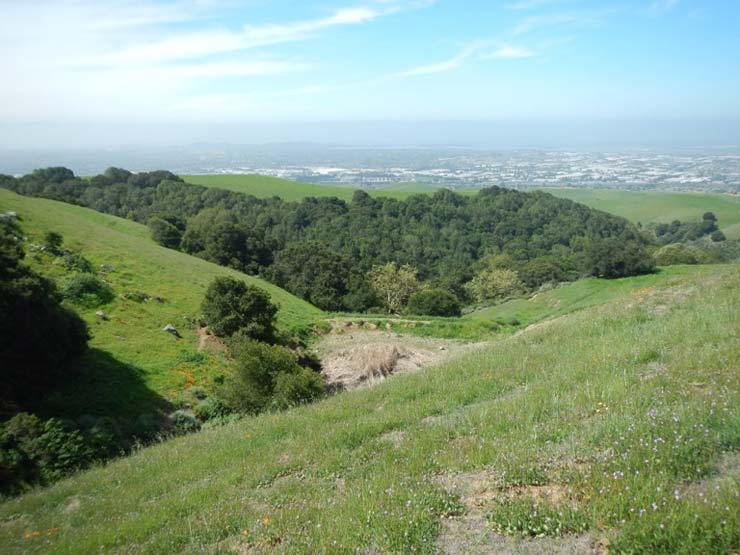Alameda County Resource Conservation District - Wildlife-friendly Pond Restoration Program
February 2017

The Alameda County Resource Conservation District (ACRCD) has partnered with the USDA Natural Resources Conservation Service (NRCS) for the past 11 years to implement the Wildlife-friendly Pond Restoration Program in Alameda County. The Program has been designed to provide incentives for prioritizing voluntary wetland restoration within the coastal watersheds of San Francisco Bay on both public and private lands. These incentives include streamlined permitting assistance, project planning and design, cost share assistance, and engineering/biological assistance during project implementation.
To date, the program has implemented 32 livestock pond restoration projects through partnerships with the State Coastal Conservancy, Wildlife Conservation Board, USFWS Partners for Fish and Wildlife Program, East Bay Regional Park District, Livermore Area Recreation Park District, the San Francisco Public Utilities Commission, and numerous private landowners. Total cost for construction has been $1,293,000 with $608,000 coming from federal dollars and the remaining $685,000 in state, public and private funds. The successful program was piloted in Contra Costa County, partnering with the Contra Costa Resource Conservation District in 2015 where they have duplicated the streamlined permit programs and have implemented 4 livestock pond restoration projects to date.
The focus is on restoration of livestock ponds that are being regionally lost as a result of increased cost for maintenance along with increased regulation. There are an estimated 800-1000 ponds in Alameda County built in the mid-1900s with the primary intention of providing water for cattle. They were originally installed to last 20 years and are failing due to siltation and erosion. Over time these ponds have become important habitat for sensitive species, such as the California red legged frog and California tiger salamander, as well as serving as an important water source for common species such as waterfowl, deer and mammals during the dry summers in the arid rangelands of the East Bay.
Pond repairs are not economical for land managers, with costs ranging from thirty to one hundred thousand dollars per repair. Land managers are becoming less interested in restoration of the wetland ponds as they no longer depend on them for livestock water. Water tanks and troughs have become a cheaper alternative for addressing cattle water needs on the landscape. The combination of increased costs, regulations and less expensive watering alternatives, has made it so that restoring ponds is no longer economically viable for many landowners.
The Program has developed two unique permit programs: the Alameda County Voluntary Local Program with the California Department of Fish and Wildlife and a federal Safe Harbor with the US Fish and Wildlife Service. The Voluntary Local Program was the first issued in the state and provides take authorization for the California tiger salamander and Alameda whipsnake and coverage under the California Endangered Species Act to the landowners who implement their pond restoration projects through the ACRCD. The Safe Harbor Agreement provides similar coverage for the California red-legged frog and California tiger salamander. Both programs recognize the unique and important role that private and public landowners in California play in wildlife and habitat enhancement and provides ongoing coverage for routine and ongoing agricultural activities on the enrolled properties to enhance the “if you build it, they will come and you won’t be penalized” incentive.
The ACRCD and NRCS continue to seek funding to plan, design and implement projects for this Program now and into the future.
